-
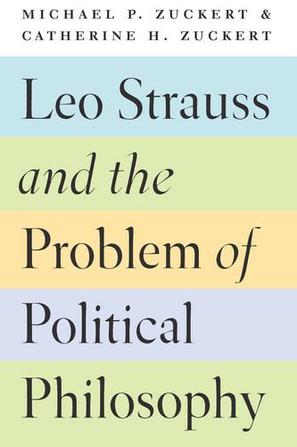
Leo Strauss and the Problem of Political Philosophy
Leo Strauss and his alleged political influence regarding the Iraq War have in recent years been the subject of significant media attention, including stories in the Wall Street Journal and New York Times.Time magazine even called him “one of the most influential men in American politics.” With The Truth about Leo Strauss, Michael and Catherine Zuckert challenged the many claims and speculations about this notoriously complex thinker. Now, with Leo Strauss and the Problem of Political Philosophy, they turn their attention to a searching and more comprehensive interpretation of Strauss’s thought as a whole, using the many manifestations of the “problem of political philosophy” as their touchstone. For Strauss, political philosophy presented a “problem” to which there have been a variety of solutions proposed over the course of Western history. Strauss’s work, they show, revolved around recovering—and restoring—political philosophy to its original Socratic form. Since positivism and historicism represented two intellectual currents that undermined the possibility of a Socratic political philosophy, the first part of the book is devoted to Strauss’s critique of these two positions. Then, the authors explore Strauss’s interpretation of the history of philosophy and both ancient and modern canonical political philosophers, including Plato, Aristotle, Machiavelli, and Locke. Strauss’s often-unconventional readings of these philosophers, they argue, pointed to solutions to the problem of political philosophy. Finally, the authors examine Strauss’s thought in the context of the twentieth century, when his chief interlocutors were Schmitt, Husserl, Heidegger, and Nietzsche. The most penetrating and capacious treatment of the political philosophy of this complex and often misunderstood thinker, from his early years to his last works, Leo Strauss and the Problem of Political Philosophy reveals Strauss’s writings as an attempt to show that the distinctive characteristics of ancient and modern thought derive from different modes of solving the problem of political philosophy and reveal why he considered the ancient solution both philosophically and politically superior. -
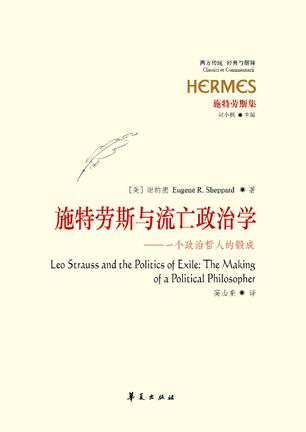
施特劳斯与流亡政治学
《施特劳斯与流亡政治学(施特劳斯集)》以时间为经、问题为纬,借助详实缜密的历史分析和文献梳理,展现了青年施特劳斯思想发展的生动画面,为读者勾画了一幅政治哲人蜿蜒求索的思想地图。无论从思想分期、原初意图,还是理论旨趣方面,要想对施特劳斯思想获得一种恰切的理解和把握,就要对他的流亡处境、生活经历有所了解,在生活与思想的关联中勾勒这位政治哲人的思想肖像。 -

论施特劳斯
施特劳斯是谁?他究竟有怎样的魅力和能力,得以在社会科学研究的洪流中,坚持古典德行的超越?近年以来,随着中国施特劳斯热的兴起,关于其人其书其脉络渊源的研究也层出不穷,不过转渡的、引介的多,原创的少,学样的多,究竟于中国背景和中国问题的少,少之又少。 本书为中国汉语学界原创的,以中国背景和中国问题为导向的施特劳斯思想研究作品。篇幅不长,然而问题精到,阐述清晰,颇能开宗明义,直探其核心要旨,并在此基础上,对施特劳斯思想在中国未来的进路与前景有深刻的反思。 作者陈建洪,南开大学哲学系主任,浸淫政治哲学与施特劳斯思想经年。本书的出版,必将推动中国政治哲学研究的深入,推动汉语学界积极转化施特劳斯的古典研究于中国意识、中国语境、中国问题之中。 -
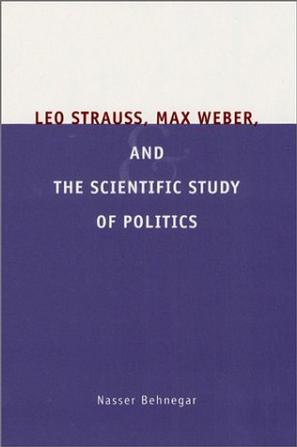
Leo Strauss, Max Weber, and the Scientific Study of Politics
Can politics be studied scientifically, and if so, how? Assuming it is impossible to justify values by human reason alone, social science has come to consider an unreflective relativism the only viable basis, not only for its own operations, but for liberal societies more generally. Although the experience of the sixties has made social scientists more sensitive to the importance of values, it has not led to a fundamental reexamination of value relativism, which remains the basis of contemporary social science. Almost three decades after Leo Strauss's death, Nasser Behnegar offers the first sustained exposition of what Strauss was best known for: his radical critique of contemporary social science, and particularly of political science. Behnegar's impressive book argues that Strauss was not against the scientific study of politics, but he did reject the idea that it could be built upon political science's unexamined assumption of the distinction between facts and values. Max Weber was, for Strauss, the most profound exponent of values relativism in social science, and Behnegar's explication artfully illuminates Strauss's critique of Weber's belief in the ultimate insolubility of all value conflicts. Strauss's polemic against contemporary political science was meant to make clear the contradiction between its claim of value-free premises and its commitment to democratic principles. As Behnegar ultimately shows, values--the ethical component lacking in a contemporary social science--are essential to Strauss's project of constructing a genuinely scientific study of politics. -
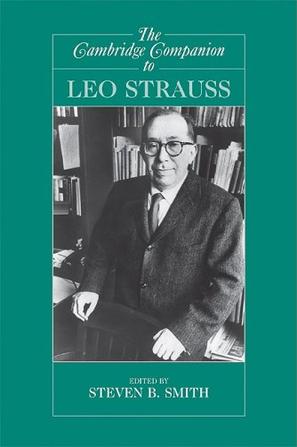
The Cambridge Companion to Leo Strauss
Leo Strauss was a central figure in the 20th century renaissance of political philosophy. The essays of The Cambridge Companion to Leo Strauss provide a comprehensive and non-partisan survey of the major themes and problems that constituted Strauss’s work. These include his revival of the great ‘quarrel between the ancients and the moderns,’ his examination of tension between Jerusalem and Athens, and most controversially his recovery of the tradition of esoteric writing. The volume also examines Strauss’s complex relation to a range of contemporary political movements and thinkers, including Edmund Husserl, Martin Heidegger, Max Weber, Carl Schmitt, and Gershom Scholem, as well as the creation of a distinctive school of ‘Straussian’ political philosophy. -
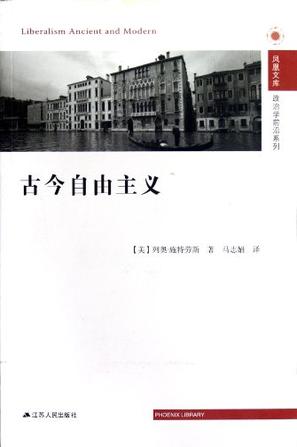
古今自由主义
列奥·施特劳斯生前就备受推崇和攻击,他留下的丰富遗著继续引起讨论和争议。《古今自由主义》结集的文章涵盖了定义何为施特劳斯思想的重要主题:西方传统中理性与启示的张力,自由民主政治的哲学基础,特别是古代与现代两种自由主义相互冲突而又互补的关系。想了解这位煽动性的思想家,没有比读《古今自由主义》更合适的了。